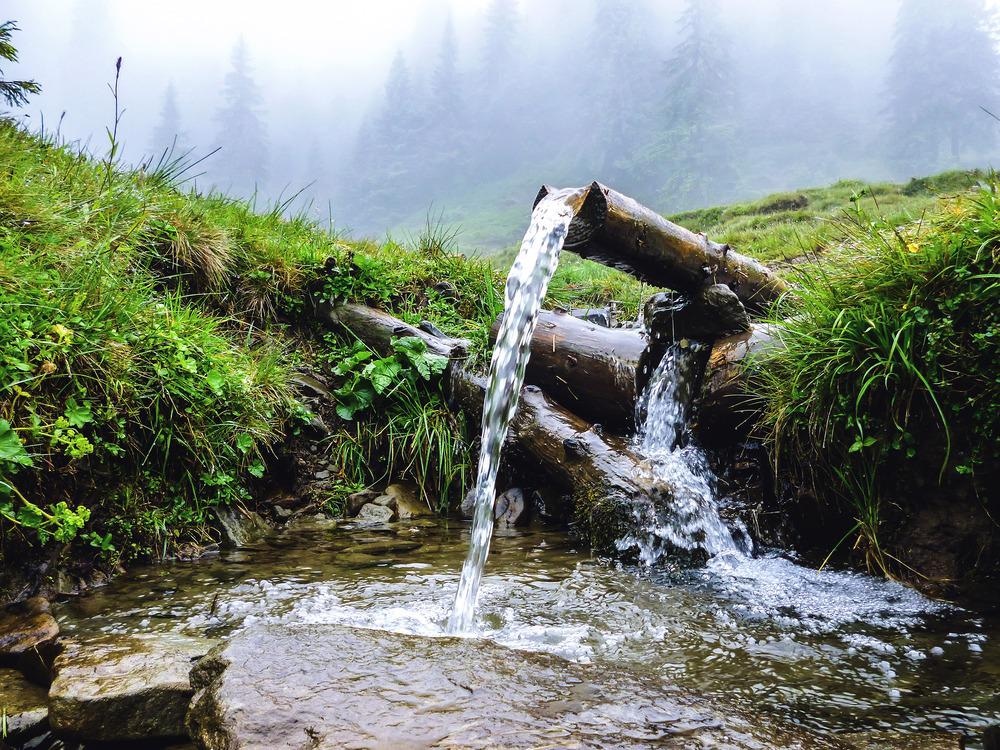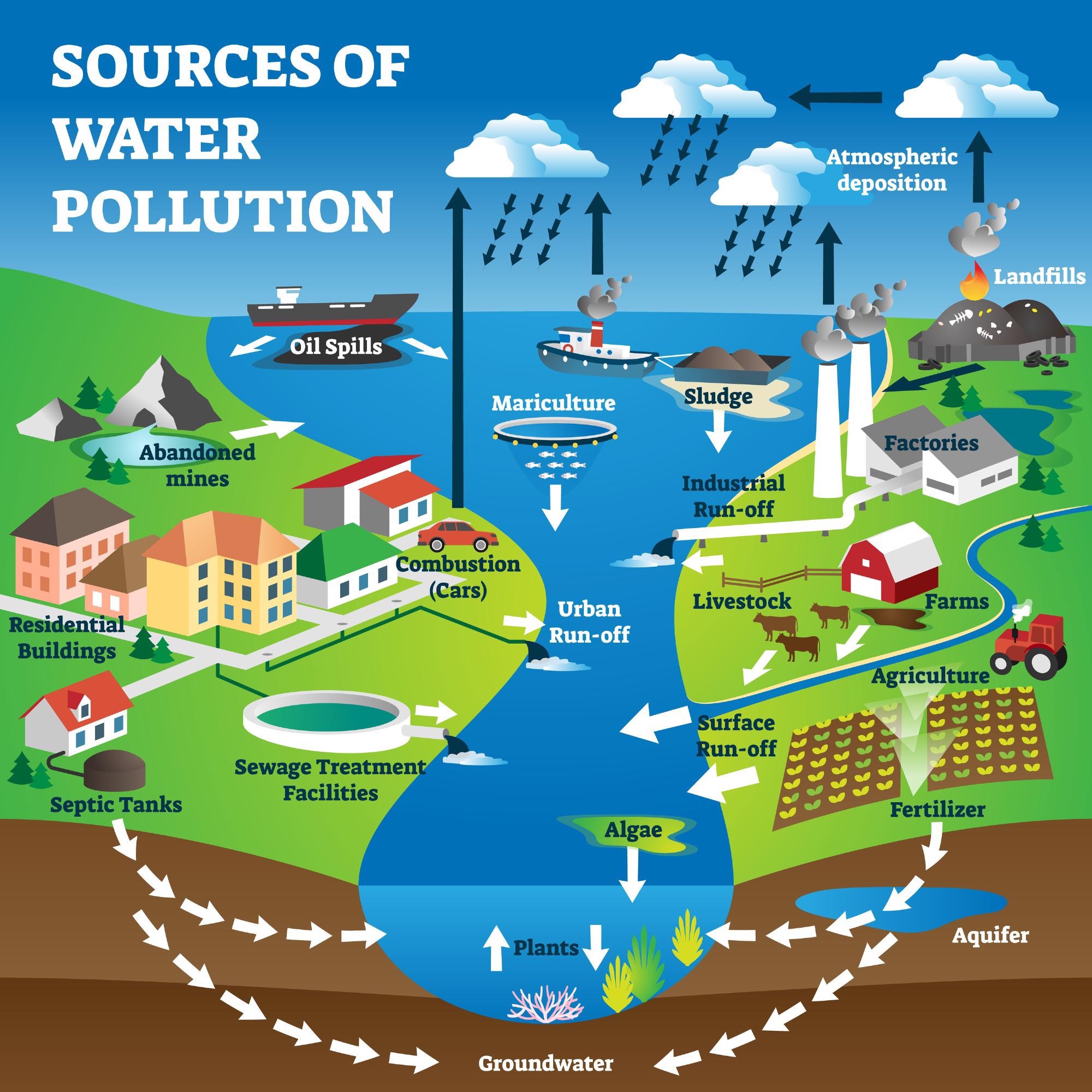
Image Credit: National Ground Water Association
Why Do We Celebrate National Groundwater Awareness Week?
The National Groundwater Association (NGWA) is conducting National Groundwater Awareness Week from March 6–12, 2022. This celebration emphasizes the importance of groundwater to human health and the environment.
The goal of National Groundwater Awareness Week is to consider research and data when it comes to groundwater, as well as to enlighten people about the importance of groundwater to nations throughout the globe.
National Groundwater Awareness Week educates people about innovative approaches to maintain groundwater-dependent ecosystems. It also helps raise funding for research into how groundwater flows through the subsurface and what factors influence its quantity and quality.
Groundwater and its Importance

Image Credit: Farion_O/Shutterstock.com
Water found beneath the Earth's surface in the spaces between rock and soil is known as groundwater. Water that gathers above the surface of the planet, such as rivers, streams, lakes, and seas, is known as surface water.
Groundwater makes up about 30% of all freshwater on the planet, whereas surface water makes up approximately 70%. Groundwater is an essential source of water for public water supply and private wells around the world since it delivers water to wells and springs.
The majority of freshwater is located underground in aquifers and as soil moisture. Because groundwater can feed streams, a river can continue to flow even when there is no precipitation. Both ground and surface water may be used by humans.
Groundwater makes up around 98% of the world's accessible freshwater and is around 60 times more abundant than freshwater found in lakes and streams. Groundwater, as a vital source of drinking water, keeps society afloat and, if depleted, can have disastrous consequences. That is why, during this week, scientists and activists are educating people about methods to care for the planet they live in via seminars and social media.
What is the Water Cycle?
The hydrologic cycle, often known as the water cycle, is a flow chart of how water is recycled in the environment. Water molecules stay constant regardless of whether they are solid, liquid, or gaseous. The process of liquid becoming water vapor occurs as drops of water in the ocean evaporate.
Water vapor may evaporate from water surfaces, land surfaces, and snowfields, and enter the atmosphere. Condensation is the mechanism of water vapor in the air converting to liquid water. Condensed water is the water that collects on the outside of a cold glass of water. The process of condensation is the polar opposite of evaporation.
A cloud is formed when water vapor condenses on microscopic particles of smoke, dust, and salt crystals. Water droplets join with other droplets and fall to Earth as precipitation after some time (rain, sleet, snow, hail, dew, and frost). Once the precipitation hits the earth, it travels into an aquifer as groundwater or remains above ground as surface water.
The Water Cycle is Affected by Contaminants
Humans, animals, and the environment all benefit from water cycle protection. Contaminants may be picked up by water at any time and transported to later stages of the cycle. During a strong rain or snowmelt, litter, sediment and invisible pollutants (such as fertilizers, oils, pesticides, and other chemicals) are transported over land and downstream to water bodies.
Industrial emissions may travel through the air and into clouds, causing acid rain. Pollution from a variety of sources accumulates across a watershed, damaging living creatures it comes into contact with.

Image Credit: VectorMine/Shutterstock.com
How to Tackle Water Contaminations
A healthy ecosystem naturally filters some pollutants, but only to a certain extent. Natural filtration zones include permeable soils, vegetation, and wetlands, which absorb water and toxins to produce a ‘sink’ that slows the water down.
Over the last several decades, a huge amount of research has gone into developing reliable and efficient ways for detecting pollutants with the least amount of operational cost and energy. Quantitatively and qualitatively, recent advances in spectroscopic methods and biosensor approaches have enhanced detection sensitivities.
The accessibility of in-situ measurement techniques and multiple detection analyses has enhanced water monitoring applications in a variety of advanced techniques, including the effective implementation of hand-held sensing devices that improve adaptability in real-time for the identification of contaminants such as pesticides, microorganisms, heavy metal ions, and organic and inorganic components.
Over Pumping and Ways to Solve it
Excessive groundwater extraction by pumping has three significant effects on groundwater quality.
- Excessive pumping moves oxygen and organic-rich surface water into the subsurface.
- It encourages the accumulation of arsenic in surface soil that is watered with arsenic-laced groundwater.
- It moves groundwater replenishment zones at extraction sites to varied depths, transporting dissolved arsenic from shallow to deeper aquifers.
Through technical or legislative intervention, optimal management for safe and sustainable groundwater exploitation activities in the region must attempt to mitigate the negative effects of pumping on groundwater quality.
Unprotected Groundwater
Because of many natural sources or a variety of human activities, groundwater may become polluted and unprotected due to residential, municipal, commercial, industrial, and agricultural operations.
Contaminants can enter groundwater through land surface activities. These include:
- Releases or spills from stored industrial waste
- Sources below the land surface but above the water table, such as septic systems or leaking underground petroleum storage facilities
- Structures underneath the water table, including wells
Groundwater with unacceptable levels of such pollutants is not suitable for drinking or other household water usage unless it is treated to eliminate the contaminants.
Groundwater is an important resource that must be protected through successful development and management. National Awareness Week hopes to highlight this importance and encourage well testing and maintenance, as well as promote policies that seek to further protect groundwater quality and supply. Continuing to take these steps will ultimately ensure our groundwater is clean and accessible for all those that use it, and will help create a healthier environment.
References and Further Reading
Aravindakumar, C., et al. (2018) Water: From Pollution to Purification. Environmental Science and Pollution Research. https://link.springer.com/article/10.1007/s11356-018-2352-0
Mullen, K. (2022) Information on Earth’s Water. [Online] National Ground Water Association. Available at: https://www.ngwa.org/what-is-groundwater/About-groundwater/information-on-earths-water
Odeh, T., et al. (2019) Over-pumping of groundwater in Irbid governorate, northern Jordan: a conceptual model to analyze the effects of urbanization and agricultural activities on groundwater levels and salinity. Environmental Earth Sciences. https://link.springer.com/article/10.1007/s12665-018-8031-0
Zulkifli, S., et al. (2018) Detection of contaminants in water supply: A review on state-of-the-art monitoring technologies and their applications. Sensors and Actuators B: Chemical. https://doi.org/10.1016/j.snb.2017.09.078
Disclaimer: The views expressed here are those of the author expressed in their private capacity and do not necessarily represent the views of AZoM.com Limited T/A AZoNetwork the owner and operator of this website. This disclaimer forms part of the Terms and conditions of use of this website.